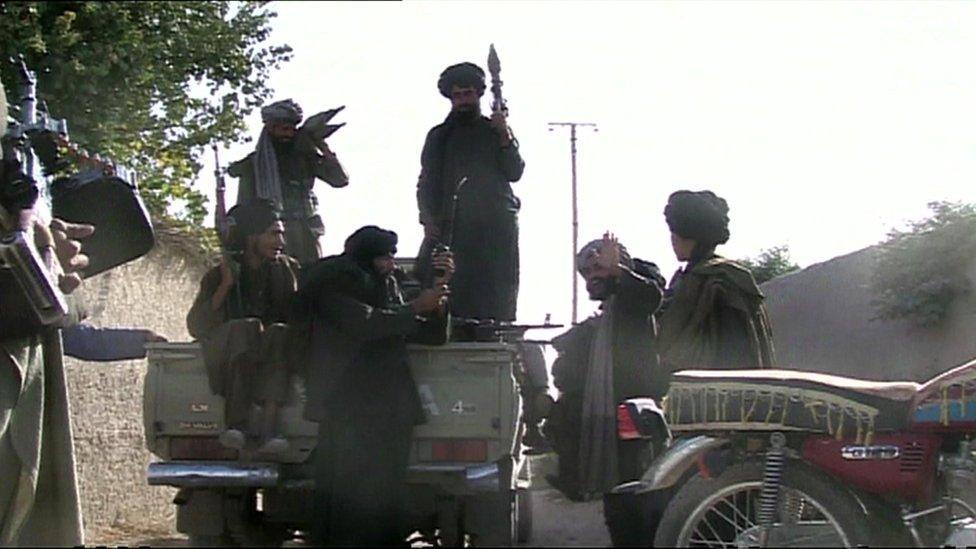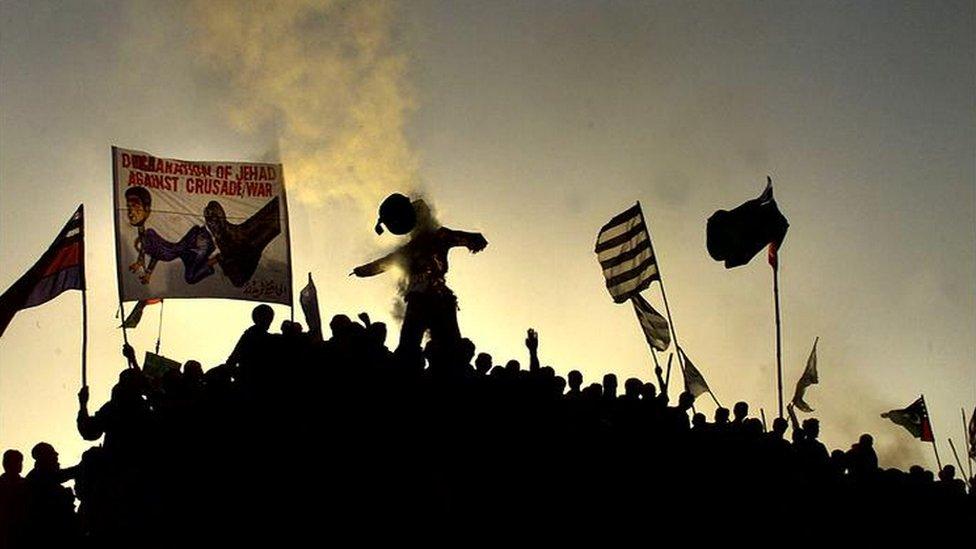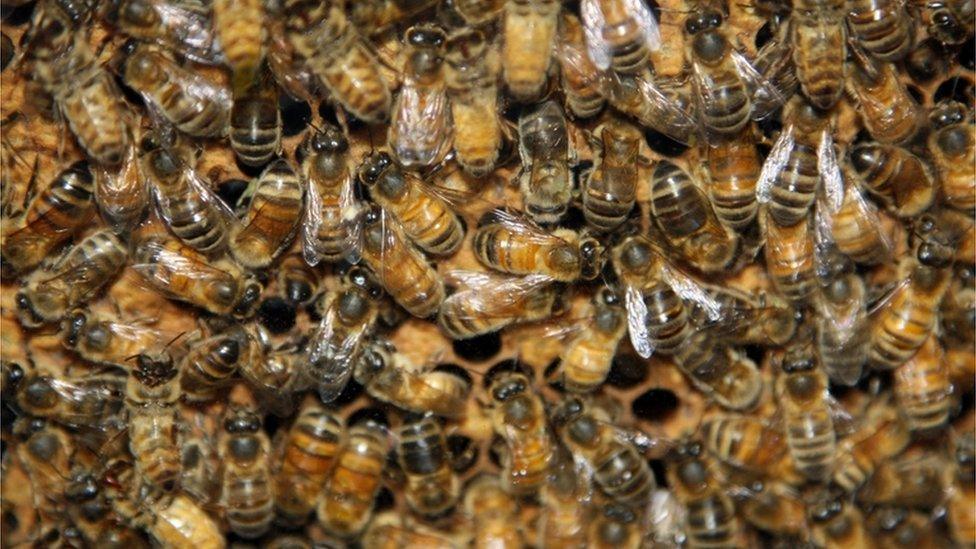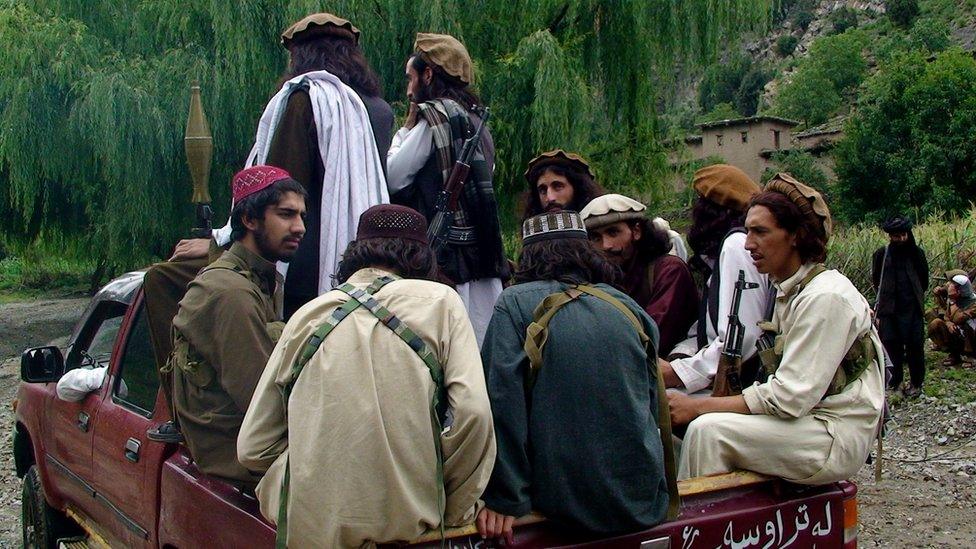Taliban expert views: Money from honey
- Published

The Taliban and their allies make money from a number of ventures, including, perhaps bizarrely, the sale of honey.
The Quetta shura, meanwhile, is "a name for a mechanism rather than for a headquarters".
Four leading experts on the Taliban explain how the Afghan insurgent movement works.

Top-down unity - could the Taliban split?
Waheed Mozhda: "The Taliban are a highly ideological group and that's the reason they have not split. Its members fully obey their emir based on allegiance. The other reason for their unity is that their enemies are stronger than they are and therefore they know that if there are differences they will be wiped out. The Quetta shura is the central council of the Taliban and the implementer of the emir's decrees. The Haqqani network is not an independent group. It works under the emir. An example of this obedience was the handing over of Sergeant Bowe Bergdahl in exchange for five Taliban leaders who were in Guantanamo. The deal was reached in Qatar between Americans and the Taliban office there."
Barnett Rubin: "There have not been any Taliban factions until now. The Taliban were founded to put an end to factionalism or 'fitna', and there is a strong presumption against it. Different individuals had different opinions, but they did not organise factions. Whatever disagreements there were, everyone followed the commands of Amir ul-Mumineen [Commander of the Faithful]. There have been dissident individuals who left or were expelled from the organisation, but once they were expelled or left, they lost all influence. The political office is not a faction any more than the state department is a faction. None of these advocate a distinctive political stance or acts as an opposition. They just compete for status, money and power. Of course control of the leadership of commanders is sometimes weak, but the commanders do not constitute factions. Whether factions now start to develop depends on how successful Mansour is in consolidating his legitimacy as emir.

The experts
Dr Barnett R Rubin, leading US expert on Afghan affairs. Senior fellow and associate director of the Centre on International Co-operation
Borhan Osman, researcher with the Afghanistan Analysts Network, expert on Islamic movements
Waheed Mozhda, Kabul-based analyst, used to work in the Taliban foreign ministry
Haroon Rashid, BBC Urdu, Islamabad bureau editor


Quetta is said to have hosted many Afghan Taliban since 2001
Where is the Quetta shura?
Haroon Rashid: "The Taliban never have been a well-established organisation as we may think. They survive on the bare minimum. They never had an office in Pakistan but remain on the move all the time. Pakistani seminaries and mosques have remained their favourite place to operate from. A Haqqani network office was discovered in Miranshah [North Waziristan, Pakistan] last year during Pakistan military operations, but it's not clear since when it was operative. Afghanistan has been pointing fingers at the Quetta and Peshawar shuras in Pakistan, but the Taliban deny [the existence of] any such offices."
Borhan Osman: "Quetta shura is a name for a mechanism rather than for a headquarters. They meet at the home of one of the members or supporters. The next day they meet in another town. These are always mobile meeting mechanisms."


Money from honey - financing the insurgency
Barnett Rubin: "Inside Afghanistan the main income seems to come from protection rackets and tolls, bribes or taxes collected or extorted from commercial and other traffic. Members of the Taliban also own businesses in the United Arab Emirates, in Qatar and Saudi Arabia that produce funds. The Haqqanis have a large business network in Pakistan, Afghanistan and the Persian Gulf, including the sale of honey. Of course everyone in Afghanistan who controls land that grows poppy, or roads over which opiates are transported makes money from protection and extortion of the drug industry, including the Taliban, but that is only part of their portfolio."
Waheed Mozhda: "Besides taxing people on agricultural products from wheat to opium, the Taliban have other sources of income: Controlling highways, taking money from businessmen, taking government and foreign troops' goods and supplies. In the past 12 years contractors had to pay money to the Taliban to conduct their projects. Foreign donors had security funds for contractors to recruit security, but instead they paid the Taliban commanders in the field to conduct the project as the easiest way. The security companies that were supposed to escort the supply convoys had to pay the Taliban for safe passage. In 2014 the Taliban added a branch to their finance committee for mining. The committee leases those mines under the Taliban's control to people and companies. The finance committee of the Taliban is the most important one after the military committee."
Men of letters - how the Taliban communicate
Borhan Osman: "They have developed safe communication networks. If there's a soldier who has something to pass to a military chief in Quetta, then he passes it to the person who is in charge of the district military affairs, and he passes it to the provincial chief for military affairs. It depends. If the communication is of a very high level, then that would usually not be on the phone. There are people going in and out, there are letters being exchanged - that is one safe method of sending messages to the top leadership. But other communication between one commander and another commander, between one provincial governor and another - while the provincial governor may not be himself talking to one of his commanders, but one of his aides, one of his fighters, using all this code language, may be talking on the phone and also on walkie-talkies now increasingly when they are close in the same area. But when it is with the leaders it has many layers probably."
Haroon Rashid: "The best and safest option for them is through word of mouth, but they have also been communicating through written letters. Some seized letters seen by me in North Waziristan's main town of Miranshah suggest written letters were the most popular way of communicating. But often they have used mobile phones as well. But human contacts have also long existed."
Barnett Rubin: "They have gone from destroying televisions to having a very effective internet and social media presence. Sometimes they are more effective than the Afghan or US governments."


The Pakistani Taliban are thought to back Mullah Mansour but the support has always been one of symbolic solidarity
Foreign control? The extent of Pakistani influence over the Taliban
Haroon Rashid: "Pakistan officially denies it has any control whatsoever over the Afghan Taliban. They say the Taliban are an independent lot, they would listen to opinions of all but would only do whatever they think suits them best. But there is hardly any denying the fact that Pakistan has influence on them and they have contacts. Many believe it was that impact and those contacts that allowed Pakistan to make them come to the negotiating table - first in Urumqi [Xinjiang region, China] and later in Murree [Pakistan]. Some say the Pakistan state is turning a blind eye to their presence on its soil as a strategic concession, which allows the country to make sure in return they don't pose any challenge to Pakistan... In the greater mathematics of strategies Pakistan thinks that a complete cut-off of relations is never a good option. Also it needs "willing partners" in Afghanistan that can counter the perceived Indian threat."
Barnett Rubin: "It is quite possible that many Taliban operations are directly run by the ISI [the Pakistani intelligence agency] or ISI contractors embedded with the Taliban. This was the case during 1994-2001. Pakistan and the Taliban have certain common interests. For as long as, and to the extent that these common interests are shared, Pakistan facilitates Taliban operations against Kabul (keeps them pointed in the right direction), and the Taliban don't attack the Pakistani state or society. Pakistan wants to use the pressure of Taliban operations in Afghanistan to prevent consolidation of a pro-Indian or pro-Pashtunistan government. They have said so. But implicitly they are offering to stop the Taliban insurgency if those demands are met."

Allies and rivals: Al-Qaeda, Islamic State and the Pakistani Taliban
Barnett Rubin: "Al-Qaeda supports the Taliban including by helping with fundraising. The Taliban don't need their military support, and the Taliban do not support any al-Qaeda global jihadi activities. The Taliban have shown willingness to discuss the conditions under which they would renounce al-Qaeda. The Taliban and IS are bitter enemies. As Caliph and Commander of the Faithful, [Islamic State leader] Baghdadi claims authority over Afghans as well. The leader of the Taliban is Amir al-Mumineen for Afghans only, but he can't tolerate another Amir al-Mumineen claiming Islamic authority over Afghans. Some Taliban with grievances against the leadership and who found it impossible to organise factions instead left the organisation and joined IS. Some of them were radicalised in Guantanamo. Maybe some educated youth who are also radicalised by military operations and detentions and abuse also see IS as more pure and Islamic than the Taliban, whom they associate with the failed politics of the past."
Borhan Osman: "The TTP [Pakistani Taliban] has pledged allegiance to Mullah Omar and by default would be transferring that allegiance to Akhtar Mansour. But even from the beginning it was more of a symbolic solidarity. The TTP is a completely different organisation, with a different ideology, different goals, different mechanisms. It's the same as with al-Qaeda. It pledged allegiance to the Taliban, but that is just symbolic solidarity."